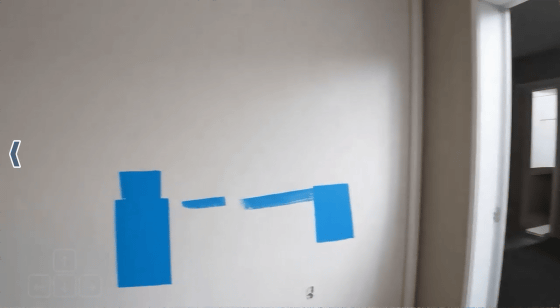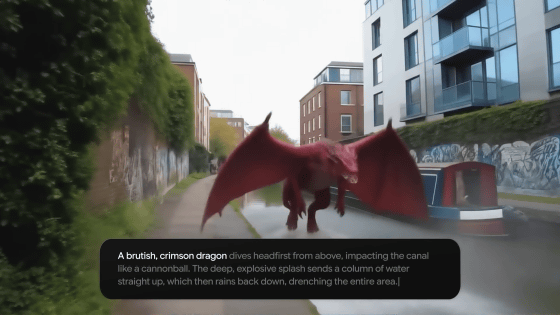Google announces 'Genie 3', an AI that can create a virtual world that can be moved by simply entering text, which may bring innovation to game development, robotics research, etc.

On August 5, 2025, Google announced Genie 3 , a world model capable of generating interactive virtual worlds. The worlds generated by Genie 3 can be moved and controlled with a camera, just like in a 3D game, and it is expected to be used in fields such as game development, robotics research, and disaster simulation.
Genie 3: A new frontier for world models - Google DeepMind
Genie 3: Creating dynamic worlds you can navigate in real time - YouTube
Genie 3 is an AI model that generates a virtual world based on text input, allowing users to navigate the generated world, change the camera perspective, and affect objects in the world.

Click on the image below to see what it's like to move through the virtual world. The virtual world isn't generated as 3DCG data; instead, each frame of the image is generated in real time in response to the user's movements.


It is possible to generate realistic environments such as old Japanese townscapes.

It can also generate unrealistic fantasy worlds.

Genie 3 also allows you to affect the world by, for example, painting walls.

As you change your perspective, different views are generated in real time.

Then, when I looked back at the wall, my progress was preserved. Genie 3 remembers the effects I've had on the world and generates a consistent world.

You can also generate a virtual world and then use text prompts to add characters, etc.

Genie 3 is expected to be used in fields such as game development, robotics research, and disaster simulation, and at the time of writing, early access is available to a small number of researchers and creators.
World models are a key stepping stone on the path to AGI, promising unlimited rich simulations for training AI agents. Genie 3 represents a significant leap forward in making this a reality.
— Google DeepMind (@GoogleDeepMind) August 5, 2025
We're providing early access to a small cohort of academics and creators, while… pic.twitter.com/p8bCOvcVM0
Related Posts:







